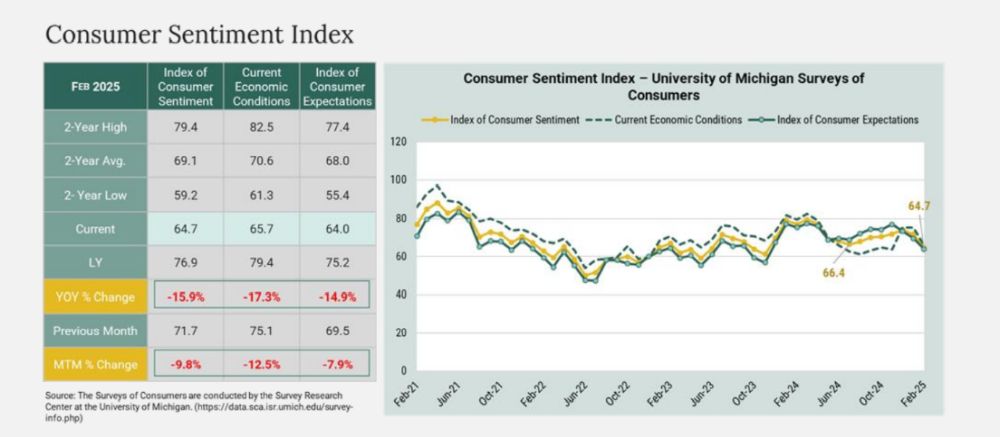- with Finance and Tax Executives
- with readers working within the Advertising & Public Relations, Business & Consumer Services and Healthcare industries
Bracing for Impact:How Retailers Can Adapt to Shifting Consumer Sentiment and Economic Uncertainty
For retailers, it is crucial to understand the profound impact that consumer sentiment has on their business, especially amid periods of economic uncertainty. The recent University of Michigan consumer sentiment survey indicates a significant decline in consumer confidence, dropping nearly 10% from January to February, signaling a worrying trend for retailers.1

The driving force behind this pessimism appears to be the rising inflation expectations, which have surged to their highest levels since November 2023. Consumers are not only concerned about immediate price hikes but also about long-term economic stability as inflation expectations for the next five to ten years have climbed to levels not seen since April 1995. This shift in consumer sentiment is largely attributed to the uncertainty surrounding Trump's trade policies and the anticipated impact of tariffs on consumer prices.
For retailers, this scenario presents a dual challenge. On the one hand, the expectation of rising prices may lead consumers to tighten their belts, reducing discretionary spending which is a vital component of retail sales. On the other hand, retailers themselves face potential cost increases due to tariffs on imports such as steel, aluminum, and other goods. This could lead to a squeeze on profit margins unless they pass these costs onto consumers, which could further dampen consumer spending.
HOW RETAILERS CAN ADDRESS THE EVOLVING CONSUMER LANDSCAPE
Retailers must navigate this landscape carefully. What will be some of the keys to dealing effectively with these headwinds?
- Communication and transparency with consumers will be key. Retailers who can effectively convey the value of their products and justify any price increases due to external economic pressures may mitigate some of the negative impacts of reduced consumer sentiment.
- Scrutinize distribution and logistics and where necessary, invest in supply chain efficiencies; exploring alternative country of origin sourcing options could help manage costs more effectively.
- Focus on strengthening online presence. With economic uncertainty, consumers might become more selective, seeking better deals and convenience, which online retail can offer. Enhancing digital marketing strategies and ensuring a seamless online shopping experience can capture consumer interest and maintain sales momentum despite the broader economic challenges.
In conclusion, while the current consumer sentiment reflects a period of uncertainty and potential challenges for retailers, these businesses can also view it as an opportunity to innovate and adapt. By understanding consumer concerns and adjusting strategies accordingly, retailers can not only weather this storm but potentially emerge stronger and more resilient in the face of future uncertainties.
Footnote
1. Source: The Surveys of Consumers are conducted by the Survey Research Center at the University of Michigan. (https://data.sca.isr.umich.edu/survey-info.php)
The content of this article is intended to provide a general guide to the subject matter. Specialist advice should be sought about your specific circumstances.



